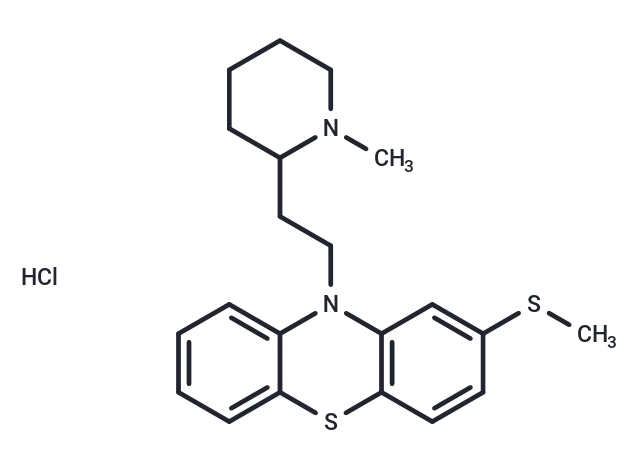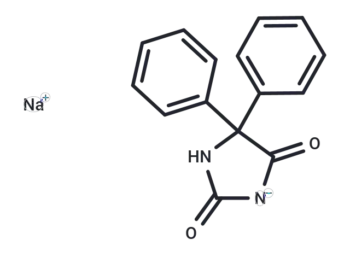Download Files:
Thioridazine hydrochloride
58 CAD – 130 CADPrice range: 58 CAD through 130 CAD
Products Details
Product Description
– Thioridazine hydrochloride (Mellaril) , an antipsychotic drug, is used in the therapy of psychosis and schizophrenia and shows serotonin antagonism or D4 selectivity.
Web ID
– T0365
Storage Temperature
– -20℃
Shipping
– Blue Ice
Molecular Formula
– C21H27ClN2S2
References
– Assie MB, et al. Eur J Pharmacol. 1993 Jun 24;237(2-3):183-9.
CAS Number
– 130-61-0
Molecular Weight
– C21H27ClN2S2
Compound Purity
– 0.9955
SMILES
– Cl.CSc1cc2c(Sc3ccccc3N2CCC2CCCCN2C)cc1
Target
– CDK
Pathway
– Apoptosis|||GPCR/G Protein|||Autophagy|||Neuroscience|||Microbiology/Virology|||Membrane transporter/Ion channel
Product type
– Small Compound
Disclaimer: All products are for Research use only unless clearly stated otherwise on the product datasheet. Datasheets provided on the website are drafts for reference purpose only and you are requested to always refer to the hard copy included in the kit for your experimentation. Agdia Products are available for delivery only in Canada.
Related Products
1000 in stock
1000 in stock






